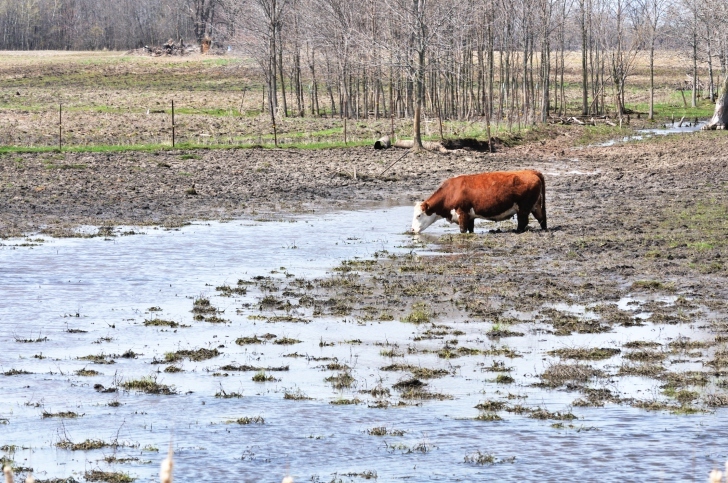In a unanimous ruling, the U.S. Supreme Court dealt a setback to federal authorities’ attempts to control the development of wetlands through their costly permitting processes, upholding the right of property owners to challenge limits placed on their property rights in court.
By a vote of 8–0, the Court determined North Dakota-based Hawkes Co., which had planned to mine peat from property owned by two affiliated companies in northwestern Minnesota, could challenge in court a U.S. Army Corps of Engineers ruling without first going through the costly process necessary to obtain a permit to disturb wetlands. The U.S. Army Corps of Engineers had ruled the property included wetlands protected by the 1972 U.S. Clean Water Act.
No Permit, No Challenge
The federal government claimed authority over Hawkes’ land under the Clean Water Act. When the plaintiffs tried to challenge the government’s determination, a trial court said the case was not ripe for court review, because it wasn’t “final agency action.” The government argued Hawkes must first apply for a permit to disturb the wetlands before it could challenge the government’s claim of authority over the land.
After multiple appeals, the case reached the U.S. Supreme Court, where it was determined as soon as the government decides property falls under the Clean Water Act’s jurisdiction, property owners can contest the finding in court. Prior to this ruling, property owners could only challenge that determination at the end of a permitting process—which often lasts as long as two years and costs more than $270,000, with owners facing penalties of up to $37,500 per day for noncompliance.
Business groups, including the National Association of Home Builders and the U.S. Chamber of Commerce, as well as 29 states, filed amicus briefs backing Hawkes.
‘Victory for Liberty, Property Rights’
In a statement, Reed Hopper—principal attorney for the Environmental Law Practice at the Pacific Legal Foundation, which argued the case before the Court on behalf of Hawkes—said, “Today’s ruling marks a long-awaited victory for individual liberty, property rights and the rule of law. Everyone who values property rights and access to justice should welcome this historic victory.”
In an interview with Environment & Climate News, Hopper expanded upon the importance of this case for property owners nationwide.
“When property is labeled a ‘water of the United States’ under the Clean Water Act, the federal government obtains a veto power over the land use in contravention of the Act and the U.S. Constitution,” Hopper said. “Thus, this is a red letter day for landowners nationwide allowing, for the first time since the Clean Water Act was passed, public and private landowners a way to hold the federal government accountable for overreaching. They can go to court and challenge Corps and EPA claims of federal jurisdiction over their property.
“The unanimous decision by the Supreme Court is more than a win, it’s a vindication, vindicating the right [belonging to] property owners to hold government officials accountable when they exceed their authority under the Clean Water Act for their decisions in a court of law,” Hopper said.
H. Sterling Burnett, Ph.D. ([email protected]) is a research fellow with The Heartland Institute.





